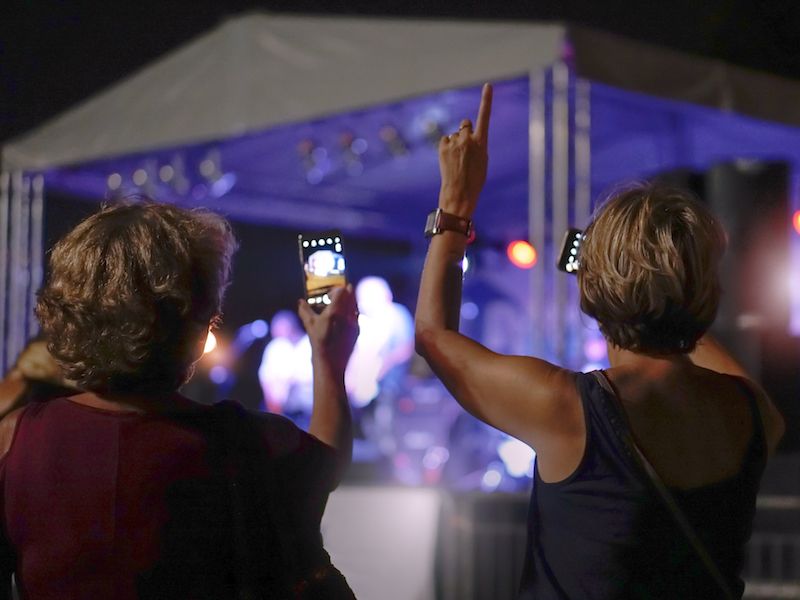
Summer has finally arrived, and it’s time for all that fun we’ve been looking forward to: swimming in the pool, going to the beach, and other activities that could damage your hearing. That’s right, summer has many unseen risks to your hearing, either from loud sounds or the environmental situations you could find yourself in. Any sounds above 80 decibels can harm your ears, while swimming in pools or other bodies of water can bring about irreversible hearing loss. To keep your ears safe and sound this summer, you need to be mindful of your surroundings and take preventative measures. Read on to identify the summer’s six hidden hazards to your ears.
Wear Ear Protection at Concerts
Whether you’re at an indoor arena or an outside concert venue you still need to use hearing protection during concerts. Live music can have volumes over 90 decibels, even at outside concerts, which is inside the danger zone of hearing loss. So whether you’re going to inside or outside shows, it’s a good plan to wear earplugs. Earplugs reduce the sound while still letting you to hear and get into the music. If you’re going to a show with young children, consider getting them a heavy duty pair of earmuffs since their hearing is much more sensitive than those of adults.
It’s More Than Just Loud at Fireworks
Honestly, there are a lot of reasons to avoid fireworks in the summer. This is not about the specialized 4th of July displays, we mean the backyard fireworks that lead to hundreds of accidents during the summertime. Home fireworks get to decibel levels of nearly 155 which can damage your ears on top of causing hand problems, loss of sight and home fires. This year, on the 4th of July, appreciate the fireworks from a distance and leave the fireworks to the pro’s.
Hearing Loss Can be Brought About by Lawnmowers
If you’re serious about your lawn, chances are you’re out there at least once a week on your lawnmower, using your edger, and trimming your bushes. But have you ever noticed how off your ears feel when you get done, how everything sounds muffled or your ears are ringing? That’s because the constant noise from your lawn tools impact your hearing over time. You may have noticed lawn professionals using some kind of hearing protection, you should take a hint from them and use earmuffs or earplugs next time you work on your yard to make sure your ears don’t get injured.
How to Protect Your Hearing When You’re at Pools And Beaches
Millions of people suffer from swimmer’s ear each summer, which occurs when bacteria-loaded water gets stuck inside your ear canal. Swelling and painful earaches result when the ear gets infected by the bacteria. These bacteria are generally found in lakes and rivers but could also live in hot tubs and pools if the water isn’t correctly managed. As long as you have your ears treated by a hearing professional you will probably be ok, and no permanent hearing loss will occur. To protect against swimmer’s ear, though, you will want to wear specialized swimming earplugs in the pool and have your pool water tested to make certain the chemical balance is safe.
Water Sports And Boats
Summertime is a breath of freedom for those individuals who enjoy being in a boat on the water, smelling the fresh lake breeze or the salty air of the ocean. But, jet ski and boat engines are usually loud,they can get up to more than 100 decibels. Continuous subjection to that kind of noise for a period of about 15 minutes can result in irreparable hearing impairment. Once more, it’s probably in your best interests to wear a pair of throw away, foam earplugs while you’re out on the water to make sure you don’t unwittingly injure your hearing.
Car Races Can Hurt Your Ears
It doesn’t make a difference what type of auto racing you enjoy, midget, Formula 1, drag racing, motorcycle Formula 1. If you go to many auto-races this year, they all present a peril. 120 dB is well within the danger zone for hearing loss and lots of races go well above this. Earplugs are your best friends at these races, whereas your children should definitely wear the earmuffs we mentioned earlier. Otherwise, you may not be able to enjoy the sound of those engines in the future.
